Embrace Mindfulness: A Comprehensive Guide to Personal Growth, Relaxation, and Mental Clarity

Introduction
In today’s fast-paced world, stress and chaos often dominate our lives. Finding peace and personal growth amidst the turmoil can seem daunting. However, mindfulness, an age-old practice, offers a pathway to inner calm and personal development. This blog delves into the multifaceted benefits of mindfulness, practical ways to integrate it into your busy life, and debunks common myths that may hinder your mindfulness journey.
For more information and knowledge you can enroll in this online video course Mindfulness (A beginner’s guide to mindfulness to your body, mind and spirit in times of chaos)
Reasons Mindfulness Helps You Grow as a Person
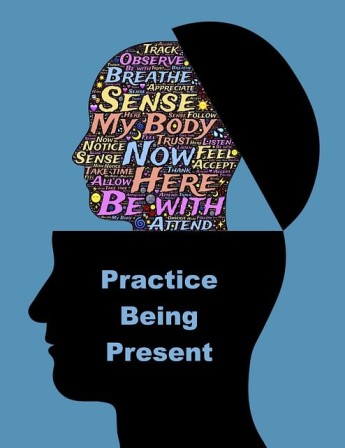
- Enhanced Self-Awareness: Mindfulness encourages you to observe your thoughts and feelings without judgment, leading to a deeper understanding of yourself. This self-awareness is the cornerstone of personal growth.
- Improved Emotional Regulation: Regular mindfulness practice helps you manage your emotions more effectively, reducing impulsive reactions and fostering healthier responses to stress.
- Better Decision Making: By fostering a calm and clear mind, mindfulness enhances your ability to make thoughtful and informed decisions.
- Increased Empathy: Mindfulness cultivates empathy and compassion, improving your relationships and interactions with others.
- Greater Resilience: Practicing mindfulness builds mental resilience, helping you navigate life’s challenges with greater ease.
Ways to Be Mindful During a Chaotic Day at Work
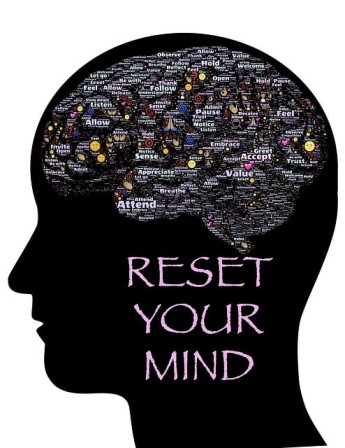
- Start with Intentions: Begin your day by setting clear intentions. Spend a few minutes in silence, focusing on what you want to achieve and how you wish to approach your tasks.
- Mindful Breathing: Take regular breaks to focus on your breath. Inhale deeply, hold for a few seconds, and exhale slowly. This simple practice can reduce stress and increase focus.
- Single-Tasking: Multitasking can lead to increased stress and reduced productivity. Focus on one task at a time, giving it your full attention before moving on to the next.
- Mindful Eating: Take time to enjoy your meals without distractions. Savor each bite, notice the flavors, and appreciate the nourishment.
- Gratitude Check-Ins: Periodically pause to reflect on things you’re grateful for. This can shift your mindset from stress to appreciation.
Reasons You Should Practice Mindfulness Today

- Reduces Stress: Mindfulness techniques can lower cortisol levels, helping you manage stress more effectively.
- Enhances Focus: By training your mind to concentrate on the present moment, mindfulness can improve your attention span and productivity.
- Promotes Better Health: Regular mindfulness practice is linked to lower blood pressure, improved immune function, and reduced symptoms of anxiety and depression.
- Improves Relationships: Being present and attentive in interactions fosters better communication and stronger connections with others.
- Boosts Creativity: A calm and focused mind is more open to creative ideas and solutions.
How Mindfulness Improves Your Mind

- Increases Grey Matter: Studies show that mindfulness meditation can increase grey matter in the brain, particularly in areas associated with memory, learning, and emotional regulation.
- Enhances Neuroplasticity: Mindfulness practices promote neuroplasticity, the brain’s ability to reorganize itself by forming new neural connections.
- Reduces Anxiety and Depression: Mindfulness has been shown to be effective in reducing symptoms of anxiety and depression by altering the brain’s response to stress.
- Improves Attention and Concentration: Regular mindfulness practice enhances the brain’s ability to focus and sustain attention over longer periods.
- Boosts Cognitive Flexibility: Mindfulness helps improve cognitive flexibility, allowing you to adapt more easily to changing situations and think more creatively.
Click for detailed information
How to Be Mindful Like a Pro
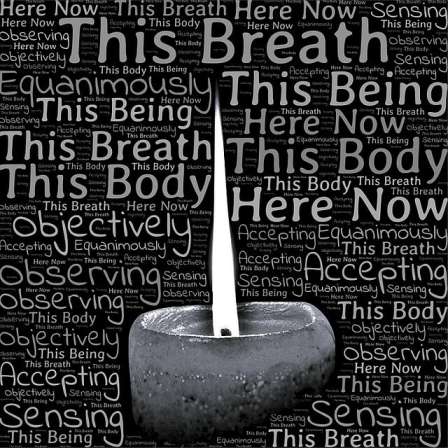
- Commit to a Routine: Set aside a specific time each day for mindfulness practice. Consistency is key to reaping the benefits.
- Start Small: Begin with short sessions, gradually increasing the duration as you become more comfortable with the practice.
- Create a Peaceful Environment: Find a quiet, comfortable space where you can practice mindfulness without interruptions.
- Use Guided Meditations: If you’re new to mindfulness, guided meditations can provide structure and support.
- Practice Non-Judgment: Approach your thoughts and feelings with curiosity and without judgment. This fosters a more compassionate and understanding relationship with yourself.
How To Relax Your Body Through Mindfulness
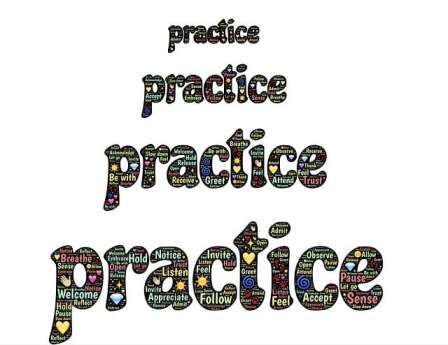
- Progressive Muscle Relaxation: Focus on tensing and then relaxing each muscle group, starting from your toes and moving up to your head. This practice helps release physical tension.
- Body Scan Meditation: Lie down in a comfortable position and mentally scan your body from head to toe, noticing any areas of tension and consciously relaxing them.
- Breath Awareness: Pay close attention to your breath, noticing the sensations of each inhale and exhale. This simple practice can quickly calm your nervous system.
- Mindful Stretching: Incorporate gentle stretching into your mindfulness practice. Pay attention to the sensations in your body as you stretch.
- Grounding Techniques: Focus on the physical sensations of your body touching the ground, whether you’re sitting or lying down. This helps anchor you in the present moment.
Mindfulness Practices for Calming the Body, Mind, and Soul

- Meditation: Regular meditation practice helps calm the mind, reduce stress, and improve emotional well-being.
- Yoga: Combining mindfulness with physical movement, yoga helps relax the body, calm the mind, and nurture the soul.
- Nature Walks: Spend time in nature, paying attention to the sights, sounds, and smells around you. This practice can be incredibly grounding and rejuvenating.
- Journaling: Reflect on your thoughts and feelings by writing them down. This can help you process emotions and gain insights into your inner world.
- Mindful Listening: Practice active listening in your conversations, fully focusing on the speaker without planning your response. This deepens your connections and fosters empathy.
Ways to Calm Your Mind Using Mindfulness
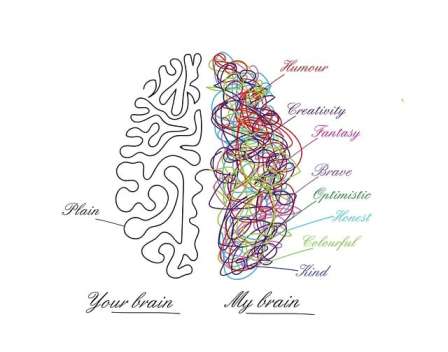
- Mindful Breathing: Focus on your breath, observing each inhale and exhale. This practice helps quiet racing thoughts and bring your mind to the present moment.
- Visualization: Imagine a peaceful scene, such as a beach or a forest, and immerse yourself in the details. This can create a sense of calm and relaxation.
- Mantra Repetition: Choose a calming word or phrase and repeat it silently to yourself. This can help anchor your mind and reduce mental chatter.
- Loving-Kindness Meditation: Focus on cultivating feelings of love and compassion for yourself and others. This practice can reduce negative emotions and promote inner peace.
- Mindful Observation: Pick an object and observe it closely, noticing its colors, shapes, and textures. This simple practice can help ground your mind in the present moment.
Myths About Mindfulness to Stop Believing Today
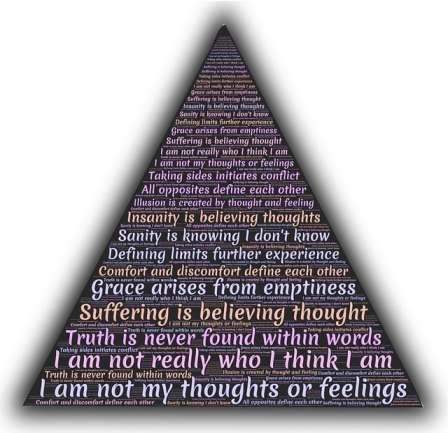
- Mindfulness Is About Clearing Your Mind: The goal of mindfulness is not to empty your mind but to observe your thoughts without judgment.
- You Need to Sit Still to Be Mindful: Mindfulness can be practiced in various forms, including walking, eating, and even during daily chores.
- Mindfulness Takes Too Much Time: Even a few minutes of mindfulness practice each day can have significant benefits.
- Mindfulness Is Only for Relaxation: While mindfulness can help you relax, it also enhances self-awareness, emotional regulation, and overall well-being.
- You Have to Be Spiritual to Practice Mindfulness: Mindfulness is a secular practice that anyone can benefit from, regardless of their spiritual beliefs.
Ways to Become Mindful During Chaotic Times

- Pause and Breathe: When you feel overwhelmed, take a moment to pause and focus on your breath. This can help you regain a sense of calm.
- Ground Yourself: Focus on the physical sensations of your body, such as your feet on the ground or your hands on a surface. This helps anchor you in the present moment.
- Mindful Acceptance: Accept your current situation without judgment. Acknowledge your feelings and thoughts without trying to change them.
- Connect with Nature: Spend time outdoors, even if it’s just a few minutes. Nature can provide a sense of peace and perspective.
- Practice Gratitude: Reflect on things you are grateful for, no matter how small. This can shift your focus from stress to appreciation.
Conclusion
Mindfulness offers a powerful way to navigate the complexities of modern life. By integrating mindfulness practices into your daily routine, you can enhance your personal growth, improve your mental and physical health, and find a sense of calm amidst the chaos. Start small, be consistent, and watch as mindfulness transforms your life.
By following these strategies and insights, you can embark on a journey of mindfulness that enriches your life in numerous ways. Whether you are new to mindfulness or looking to deepen your practice, these tips and techniques will help you cultivate a more mindful, balanced, and fulfilling life.
Follow for more information and knowledge on Mindfulness (A beginner’s guide to mindfulness to your body, mind and spirit in times of chaos)